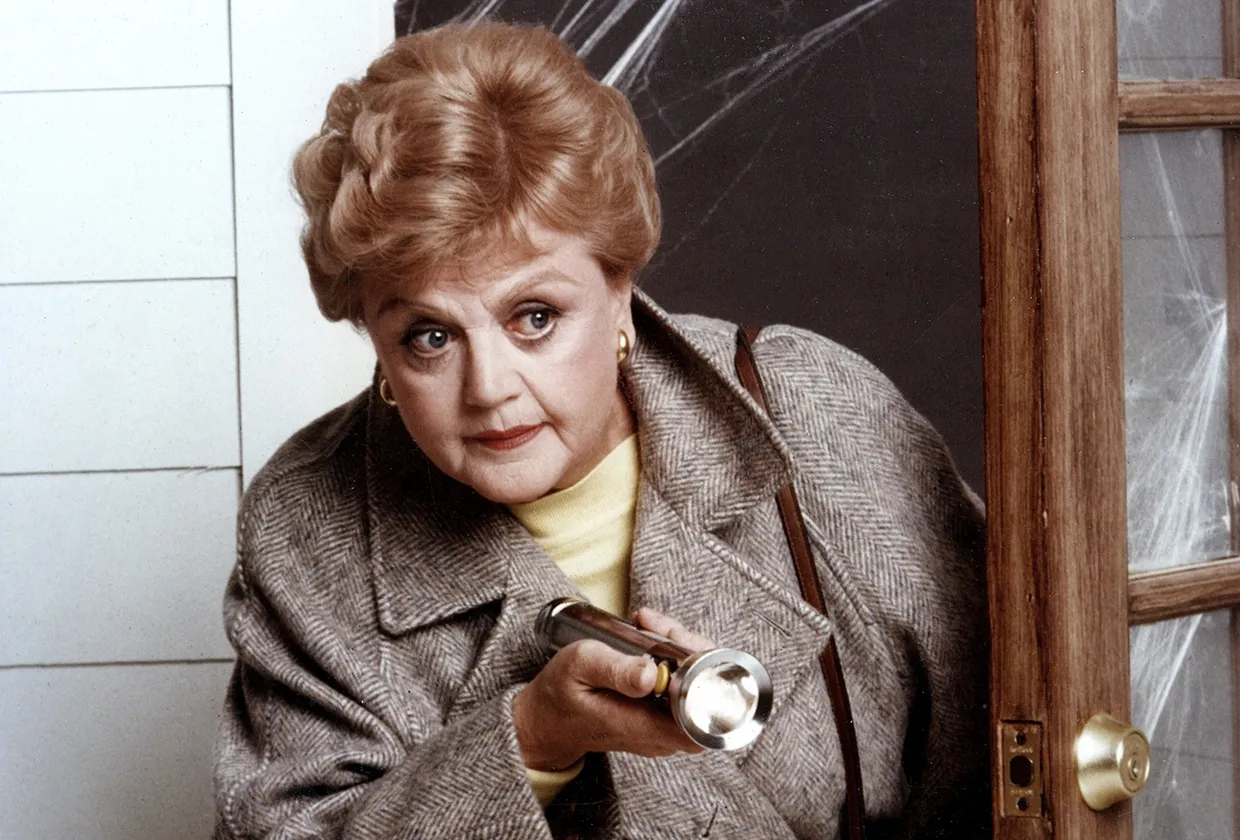Reading Lists
The Literary Spy Novel: Five Recommendations

Family tragedy drew me to Cold War literary fiction.
My uncle Frank Olson died sometime around 2:30 am on November 28, 1953 when he “jumped or fell” from his room on the thirteenth floor of the Statler Hotel in New York City. The New York Medical Examiner’s report contained that ambiguous description of how Frank came to land on the sidewalk early that morning. Frank Olson was a highly skilled Army scientist who worked at Fort Detrick in Frederick, Maryland, a top secret U.S. Army facility that researched biological warfare agents. He had gone to New York to see a psychiatrist in the company of a CIA escort, Robert Lashbrook. This was all the family knew about Frank’s death for twenty-two years.
My uncle Frank Olson died sometime around 2:30 am on November 28, 1953 when he “jumped or fell” from his room on the thirteenth floor of the Statler Hotel in New York City.
Then, in June 1975, one bit of new information came to light. Buried inside a report by The Rockefeller Commission, which had been established by President Ford to investigate allegations of illegal CIA activity within the U.S., was a two-paragraph account of an army scientist who had been unwittingly given LSD and died in a fall from a hotel window in New York. To the conflicting theories that Frank Olson “jumped or fell” another possibility was added: he was dropped. Frank Olson’s death came to embody our collective fascination with the Cold War’s dark secrets, and it shined light on the dubious privileges men in the CIA gave themselves in the name of national security.
Frank Olson left behind his wife, Alice, my aunt, and three young children, Eric, Lisa, and Nils. Their lives went on, but were never the same, and Frank’s death traumatized each of them in deeply personal ways. Eric, the eldest, dedicated his life to unpacking the mystery of his father’s death.
I observed this tragedy over the years from within the tenuous intimacy of our family connection. I witnessed how my cousin Eric’s search was frustrated by an agency clinging to it secrets. None of the volumes of books on the CIA and biochemical warfare dug deeply into the minds of the men who inhabited Frank’s world — and even today questions about his death remain unanswered.
I was curious about the men who were responsible, but they remained hidden, opaque, masked. I believe that is why, some years ago, I was drawn to the literary spy novel. It put a human face on the Cold War by focusing on the psychological burdens of its characters rather than on Byzantine plot, or high politics. Doubt and paranoia bred in a culture of secrecy characterize these novels, as does a sophisticated amorality of men at the top of intelligence bureaucracies, and above all there is the strain put on family, friends, and faith. Men who work in covert operations inevitably bring some of that darkness into themselves, suffering the moral hazards of a line of work that sanctions lying, deceit, and murder — as was the case with my uncle. The interplay of state secrets and individual lives is the trademark of the genre.
We were able to measure things in the Cold War — borders, hope, annihilation. Today the enemy is stateless and violence seemingly random, which I believe, makes us nostalgic for the measurable dangers of the Cold War.
We were able to measure things in the Cold War — borders, hope, annihilation. Today the enemy is stateless and violence seemingly random, which I believe, makes us nostalgic for the measurable dangers of the Cold War. The resurgence of Cold War fiction coincides with the enormous popularity of Cold War movies, notably Bridge of Spies, and television series like The Americans. Readers can look to the literary spy novel to glide beneath the noise of headlines and see a complex world through the knowing eyes of empathetic characters. The age of surveillance in which we live makes the genre, born in the middle of the last century, feel contemporary.
Here are five literary spy novels that stand out.
1. A Coffin for Dimitrios, Eric Ambler
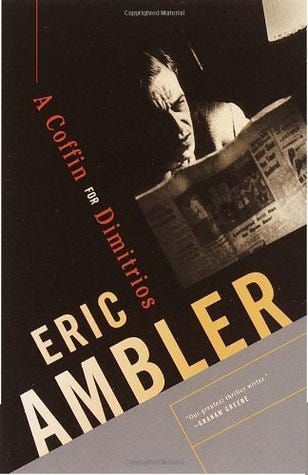
The Guardian, upon the occasion of the reissuing Ambler’s work, quoted Graham Greene, who called Eric Ambler “unquestionably our best thriller writer,” and John Le Carre, who once referred to Ambler as the “source on which we all draw.”
Ambler’s first five novels, which appeared in the tumultuous years between the World Wars, relied on durable tropes — the innocent man on whom suspicion wrongly falls who must solve a mystery to clear his name, and the precarious plight of stateless individuals. Both these themes appear in his classic, A Coffin for Dimitrios (1939). Greene admired the book so much he drew upon it when he wrote his film treatment for The Third Man. It is regarded as Ambler’s most sophisticated book. The reader quickly appreciates how the book’s narrator, Charles Latimer, an English professor who writes detective stories, turns his interest in Dimitrios into a writerly obsession that results in a stunning revelation, and in the process Latimer turns from a casual investigator into a man fearing for his life. When originally published, the book stood out within the nascent canon of spy novels, mostly nationalist in tone, rightwing in their politics, and dulled by flat prose. A Coffin for Dimitrios is among the handful of spy novels that can lay claim to launching the modern genre. Fittingly, Ian Fleming winked at the novel’s influence when he had James Bond in From Russia, with Love amuse himself with the novel (with its British title, A Mask for Dimitrios) on a plane journey to Istanbul.
A Coffin for Dimitrios is among the handful of spy novels that can lay claim to launching the modern genre.
2. The Human Factor, Graham Greene
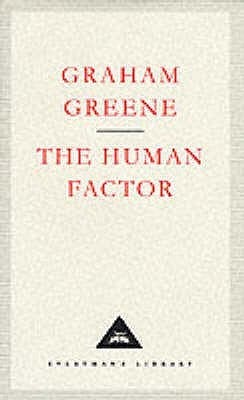
Spies figure prominently in several Graham Greene novels (usually in ways incidental to the business of spying, as in Our Man in Havana and The Quiet American), but in The Human Factor (1978) Greene takes the reader deep inside the intelligence apparatus of MI6. The England in Greene’s novel is still in the dark shadow of Kim Philby’s embarrassing defection, a country of traitorous instincts and charming manners. This wonderfully transgressive spy story has senior British intelligence officers plan to quietly dispose of one of their own rather than risk that the exposure of the man’s suspected betrayal bring public opprobrium upon the agency. Gentlemen spies talk casually of poisons as if they were talking of tea. Intelligence officer Maurice Castle, the book’s central character, slides to his fall — there is the betrayal of professional trust, his unintentional participation in the murder, and a break up of his loving family when he defects to the Soviet Union. Some of the plot points have been called unrealistic, but they are distorted to reveal the facets of Castle’s humanity. Castle’s struggle with loyalty, morality, and conscience makes The Human Factor one of the most Christian of Greene’s major novels. Greene explained himself in his memoir, Ways of Escape, this way: “I wanted to present the Service unromantically as a way of life, men going daily to their office to earn their pensions, the background much like that of any other profession — whether the bank clerk of the business director — an undangerous routine, and within each character the more important private life.”
3. Istanbul Passage, Joseph Kanon
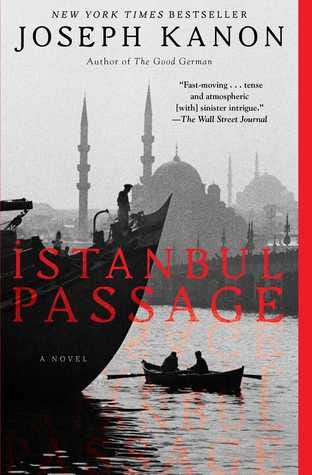
Edgar-award winning author Joseph Kanon has been called “the heir apparent to Graham Greene” by The Boston Globe. Kanon’s novels are all set in the half-decade after World War II when people and nations were called to account for their roles in the Holocaust. Kanon explores the fraught mood of that time in Istanbul Passage (2012), which was a wartime stopover for refugees and spies. Leon Bauer, an American tobacco merchant and part-time spy, undertakes one last assignment that goes fatally wrong. An exchange of gunfire leaves a body in the street and Bauer is forced to hide a defector, which draws Bauer into a tangle of shifting scrutiny, personal risk, and moral uncertainty. The novel is convincingly anchored in Istanbul’s exotic milieu and the city becomes a character, in much the same way Greene used grim, gray Vienna to good purpose in The Third Man.
4. A Delicate Truth, John Le Carré
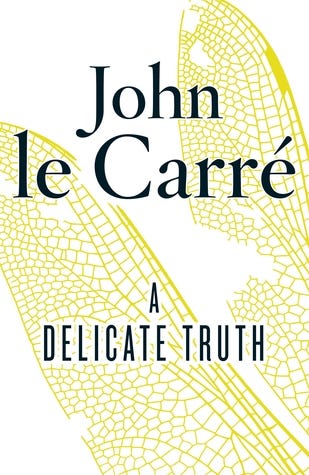
Through his 50 year career Le Carré has anatomized British society in soul searching novels that now, some argue, were cunningly disguised as escapist spy fiction. His preoccupation with the world of intelligence agencies might seem like a narrow focus, but in that lens he has explored modern life. His intelligence officers are outsiders inside corrupt bureaucracy and his books take on a world that sanctions lies and deceits as a way to shed light on those human impulses. In A Delicate Truth (2013), Toby Bell, private secretary to the Foreign Office minister, happens upon the cover-up of a disastrous anti-terrorist raid conducted unofficially by a contract operations team that mistakenly killed civilians. Exposing the cover-up threatens powerful forces. A Delicate Truth is about deception and skullduggery at the highest levels of democratic government. The book examines the ambiguous morality of using deceit in the defense of truth and violence in pursuit of peace. Le Carré has said A Delicate Truth is the personal favorite among his novels. The Daily Telegraph has called Le Carré “our greatest living novelist.”
5. Agent in Place, Helen MacInnes
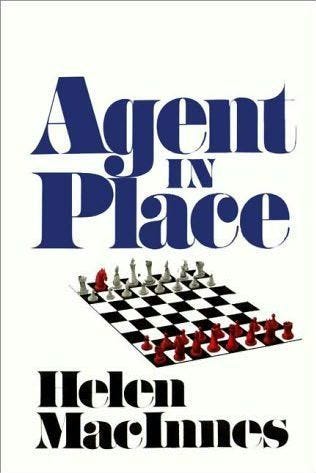
There are a few accomplished women writers of the espionage thriller, notably Stella Remington, who was the first ever female director of MI5, the British domestic spying arm, and of course, Helen MacInnes, whose 21 novels spanned the Cold War.
The spy genre, perhaps more than any other gene, has been the province of men, often men who once served in the intelligence community. There are a few accomplished women writers of the espionage thriller, notably Stella Remington, who was the first ever female director of MI5, the British domestic spying arm, and of course, Helen MacInnes, whose 21 novels spanned the Cold War. Her husband, Gilbert Highet, a classics professor at Columbia University, had been a MI6 intelligence officer World War II, and provided MacInnes with insight that enriched the detail of her novels. Agent in Place is set during the Cold War détente years of the mid-1970’s. At the start a Russian ‘sleeper’ agent has orchestrated the leak of the innocuous first part of a NATO memo to Tom Kelso, a Times journalist, in order to get the second and third parts which will give the Soviets information to unmask important Western agents. MacInnes’s heroes, like Ambler’s, are often wrongly accused innocent men who need to solve a crime to clear their name. In this case, Kelso, his integrity questioned in the leak of the NATO memo, begins a painful family affair of betrayal and loss, while a trusted friend, British agent, Tony Lawton, comes to his aid and hunts down the traitor. MacInnes is a witty writer who drapes the action of her novels with keenly observed social bunting.







